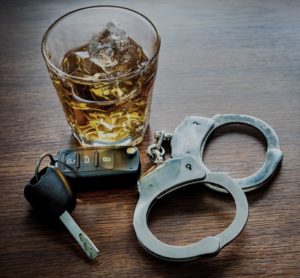New Jersey Supreme Court Looks At Right To Jury Trial In DWI Prosecutions
The New Jersey Supreme Court notified attorneys and prosecutors on February 17, 2015, that it will consider the appeal of a New Jersey man facing prosecution for a fourth DWI.
The defendant, James Denelsbeck, has asked the court to issue a ruling on whether he has a right to trial by jury. His request for a jury trial was denied by the municipal court, and that ruling was affirmed by the Superior Court and the Appellate Division.
High Court Agrees to Hear Arguments on DWI Jury Right Issue
 Contrary to popular perception, there is not a universal right to trial by jury. Pursuant to the 6th Amendment to the United States Constitution, a criminal defendant only has a right to trial by jury if the potential sentence exceeds six months of incarceration (Denelsbeck faces a potential penalty of 180 days, or six months if convicted).
Contrary to popular perception, there is not a universal right to trial by jury. Pursuant to the 6th Amendment to the United States Constitution, a criminal defendant only has a right to trial by jury if the potential sentence exceeds six months of incarceration (Denelsbeck faces a potential penalty of 180 days, or six months if convicted).
The U.S. Supreme Court has considered the issue twice, and, in both instances, has held that the provisions of the 6th Amendment apply to DWI/DUI prosecutions. While many states have allowed DWI/DUI defendants to have a jury trial, even though not required, it has been settled law in New Jersey for more than 25 years that a defendant charged with drinking and driving may not be tried by a jury of his or her peers.
Tradition vs. Practice
 It has long been the practice in New Jersey to prosecute DWI cases in municipal court, where matters are always adjudicated by a judge, rather than a jury.
It has long been the practice in New Jersey to prosecute DWI cases in municipal court, where matters are always adjudicated by a judge, rather than a jury.
State officials have consistently resisted efforts to move DWI prosecutions to Superior Court, expressing concerns about the costs of a jury trial:
- The court addressed the same issue in 1990, in State v. Hamm concluded that the state of New Jersey considered DWI to be a motor vehicle infraction, rather than a crime.
- The ruling in Hamm was consistent with a U.S. Supreme Court ruling a year earlier that found that DWI defendants facing potential incarceration of six months or less do not have a right to trial by jury.
